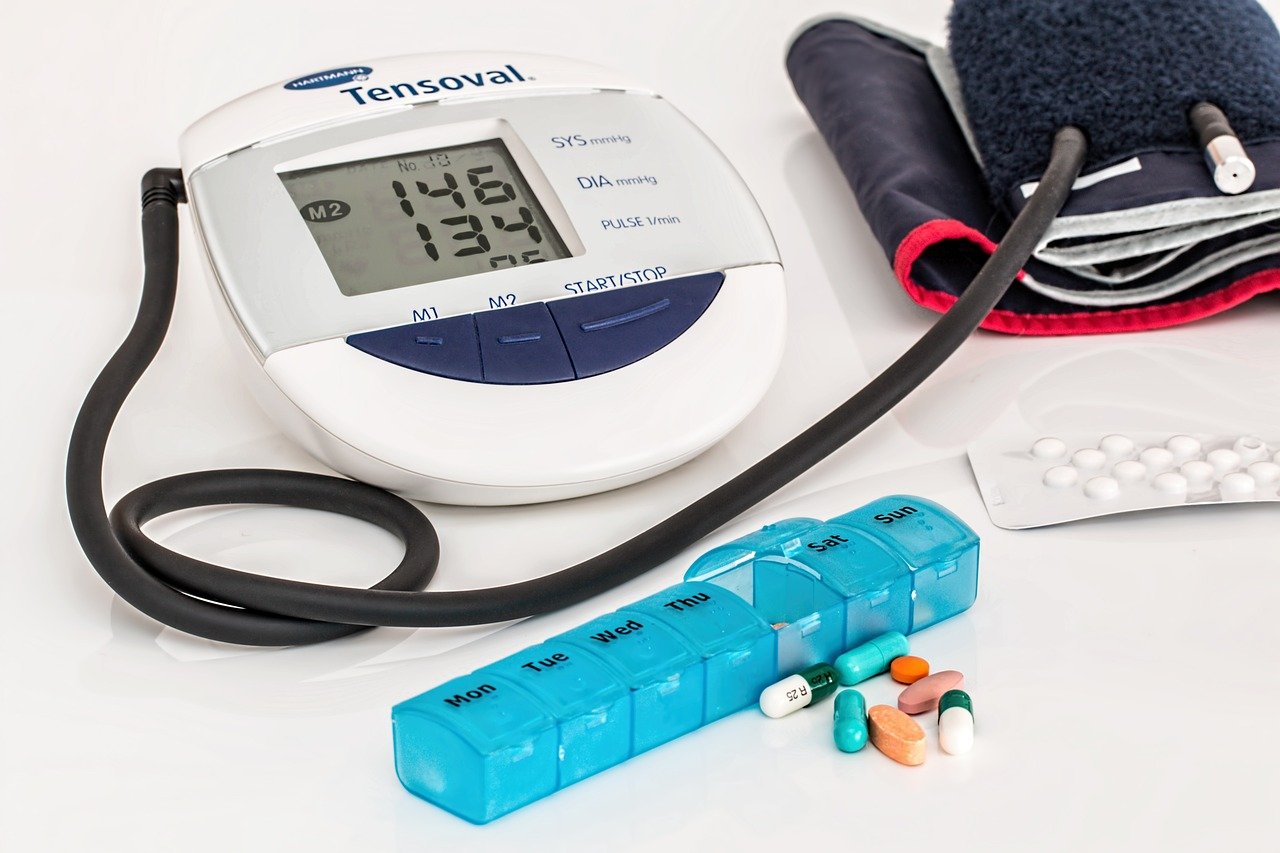What Are the Symptoms of COVID-19? Learn the Signs Here

Introduction
COVID-19, caused by the SARS-CoV-2 virus, has dramatically reshaped global public health since its emergence in late 2019. In this comprehensive guide, we will explore the various symptoms of COVID-19, their severity, and why knowing them is vital for everyone.
Common Symptoms of COVID-19
Fever
It often manifests as a sudden increase in body temperature, accompanied by chills and sweating. The fever can be persistent and may last several days, signaling the body’s immune response to the virus.
Cough
A dry, persistent cough is another hallmark of COVID-19. Unlike a typical cold or allergy cough, which may be accompanied by mucus, the cough associated with COVID-19 is usually dry and hacking. This symptom can be debilitating and is often one of the first signs individuals notice.
Fatigue
COVID-19 patients commonly report unexplained fatigue or exhaustion. This fatigue is not just a feeling of tiredness but a profound sense of weakness that can impede daily activities. Even after resting, many people find that their energy levels remain low.
Respiratory Symptoms
Shortness of Breath
This difficulty in breathing can range from mild to severe and may worsen over time. Individuals experiencing shortness of breath should seek medical attention immediately.
Difficulty Breathing
In severe cases, COVID-19 can lead to acute respiratory distress syndrome (ARDS), where the lungs are unable to provide adequate oxygen to the body. This condition is life-threatening and requires urgent medical intervention, often involving ventilation support.
Gastrointestinal Symptoms
Nausea
Nausea is a less commonly discussed symptom of COVID-19 but is reported by many patients. It can be mild or severe, often accompanied by a loss of appetite, making it challenging to maintain proper nutrition.
Vomiting
Vomiting can occur alongside nausea, leading to dehydration and electrolyte imbalances. This symptom, although not as frequent as others, can be particularly distressing and may require medical attention to manage hydration levels.
Diarrhea
Diarrhea is another gastrointestinal symptom associated with COVID-19. It can vary in severity and may occur before respiratory symptoms. This symptom can lead to dehydration, so it is important to stay hydrated and seek medical advice if it persists.
Neurological Symptoms
Loss of Taste
This symptom can occur suddenly and may affect the ability to taste all flavors or specific ones. It is often reported in conjunction with the loss of smell.
Loss of Smell
Anosmia, or the loss of smell, is closely linked to COVID-19. This symptom can occur without a blocked nose, making it a unique marker for the virus. The loss of smell can also affect the sense of taste, leading to a decreased ability to enjoy food.
Headaches
Headaches are a common complaint among COVID-19 patients. These headaches can range from mild to severe and are often described as persistent and throbbing. They may not respond to typical over-the-counter pain relief, making them particularly challenging.
Skin-related Symptoms
Rashes
Skin rashes have been reported in some COVID-19 patients. These rashes can appear as small red spots or larger, itchy patches. Some individuals may also experience hives or other dermatological changes, adding to the diversity of symptoms.
Discoloration of Fingers or Toes
It is more common in younger patients and can be quite distressing, though it typically resolves on its own.
Cardiovascular Symptoms
Chest Pain
Chest pain is a concerning symptom that can indicate severe COVID-19 complications. This pain may be sharp, pressure-like, or a feeling of tightness in the chest. It is crucial to seek emergency care if chest pain is severe or accompanied by shortness of breath.
Palpitations
Heart palpitations, or the feeling of a rapid or irregular heartbeat, can occur in COVID-19 patients. These palpitations may be alarming but are often manageable with medical advice and monitoring.
Symptoms in Different Age Groups
Children
Children typically exhibit milder symptoms compared to adults. Common signs include fever, cough, and fatigue, along with gastrointestinal symptoms like diarrhea. However, some children may develop Multisystem Inflammatory Syndrome in Children (MIS-C), a serious condition that requires immediate medical attention.
Adults
Adults can experience a wide range of symptoms, from mild to severe. It is crucial for adults, especially those with underlying health conditions, to monitor their symptoms closely and seek medical care if they worsen.
Elderly
The elderly are at a higher risk of severe COVID-19 complications. Symptoms in this age group may include confusion, delirium, and a decline in overall functioning, often without the typical fever or cough. This atypical presentation can make diagnosis challenging.
Symptoms in Asymptomatic Cases
Definition of Asymptomatic
Asymptomatic individuals carry the virus but do not show any symptoms. These individuals can still spread the virus to others, making them a significant concern in controlling the pandemic.
Potential Risks
Asymptomatic carriers can unknowingly transmit the virus, complicating efforts to curb its spread. Regular testing and adherence to preventive measures are essential to manage this risk effectively.
Severity of Symptoms
Mild Symptoms
These symptoms are usually manageable at home with rest, hydration, and over-the-counter medications.
Moderate Symptoms
Moderate symptoms may include persistent cough, higher fever, and significant fatigue. These symptoms often require medical advice and monitoring, with some individuals needing supplemental oxygen.
Severe Symptoms
Severe symptoms necessitate immediate medical attention. These include severe difficulty breathing, persistent chest pain, and confusion. Patients with severe symptoms may require hospitalization and intensive care.
Can vaccinated individuals still show symptoms?
Yes, vaccinated individuals can still show symptoms, but they are generally milder compared to those who are unvaccinated. Vaccines are highly effective in preventing severe illness, hospitalization, and death, but breakthrough infections can occur, especially with new variants.
What should I do if I experience symptoms?
If you experience symptoms of COVID-19, it’s important to self-isolate immediately to prevent spreading the virus to others. If the test is positive, follow public health guidelines for isolation and notify anyone you may have been in close contact with.
How can I distinguish COVID-19 from other respiratory illnesses?
COVID-19 can sometimes be difficult to distinguish from other respiratory illnesses like the flu or the common cold. Additionally, a COVID-19 test is the most reliable way to differentiate between these illnesses. Consulting with a healthcare provider can also help determine the cause of your symptoms.
Additional Symptoms and Considerations
Mental Health Symptoms
COVID-19 can also affect mental health. Many individuals report symptoms such as anxiety, depression, and post-traumatic stress disorder (PTSD), especially after experiencing severe illness or long-term symptoms. It’s important to address mental health issues with the same seriousness as physical symptoms.
Symptom Variation by Variant
Different variants of the SARS-CoV-2 virus can cause slightly different symptom profiles. For example, some variants may be more likely to cause cold-like symptoms such as a sore throat and runny nose, while others might lead to more severe respiratory issues. Staying informed about the prevalent variants in your area can help you understand what symptoms to watch for.
Importance of Testing
Regular testing remains a crucial tool in identifying and isolating cases of COVID-19. Rapid antigen tests and PCR tests are widely available and can help determine whether symptoms are due to COVID-19 or another illness. Frequent testing is especially important in settings where people are in close contact, such as schools and workplaces.
Symptom Management
At-Home Care
For mild to moderate symptoms, most individuals can manage their care at home. Rest, hydration, and over-the-counter medications can alleviate symptoms like fever, cough, and headaches. It’s also important to monitor your oxygen levels using a pulse oximeter, especially if you experience respiratory symptoms.
Medical Treatment
For severe symptoms, medical treatment may be necessary. This can include hospitalization, oxygen therapy, and in some cases, mechanical ventilation. Treatments such as antiviral medications, monoclonal antibodies, and steroids may also be used depending on the severity and stage of the illness.
Impact on Daily Life
Isolation and Quarantine
Isolation and quarantine measures are essential for controlling the spread of COVID-19. Individuals who test positive or have been exposed to someone with COVID-19 should follow guidelines for isolation and quarantine to prevent transmission.
Work and School
COVID-19 symptoms and the need for isolation can significantly impact work and school attendance. Many workplaces and educational institutions have policies in place to support remote work and learning during periods of isolation.
Social Interactions
COVID-19 has changed the way we interact socially. Symptoms can appear suddenly, and asymptomatic spread means that social distancing, mask-wearing, and limiting gatherings remain important strategies for reducing transmission.
Understanding COVID-19 Variants
Delta Variant
The Delta variant, first identified in India, has been associated with more severe illness and higher transmissibility compared to earlier strains.
Omicron Variant
The Omicron variant, first identified in South Africa, is highly transmissible but appears to cause milder symptoms in many cases, particularly in vaccinated individuals. Common symptoms include sore throat, runny nose, and fatigue, with less frequent loss of taste and smell.
Future Considerations
Booster Shots
Booster shots have become a key component of ongoing vaccination strategies. They help enhance and prolong the immune response, particularly against new variants. Staying up-to-date with booster recommendations is important for maintaining protection.
Emerging Treatments
Research into new treatments for COVID-19 continues. Antiviral pills, new monoclonal antibodies, and other therapies are being developed and tested to provide more options for managing the disease.
Public Health Measures
Public health measures such as mask mandates, social distancing, and travel restrictions may continue to be implemented as necessary based on case numbers and the emergence of new variants. Staying informed about local guidelines and recommendations is crucial.
Conclusion
Understanding the wide range of symptoms associated with COVID-19 is vital for early detection, effective management, and preventing the spread of the virus. Recognizing symptoms early can lead to better outcomes and help protect the broader community. By staying informed, following public health guidelines, and taking preventive measures like vaccination, we can work together to mitigate the impact of COVID-19.
FAQs
Can COVID-19 symptoms vary between individuals?
Yes, symptoms can vary widely among individuals, influenced by factors such as age, underlying health conditions, and vaccination status. Some people may experience mild symptoms, while others may develop severe or unusual symptoms.
How long after exposure do symptoms appear?
Symptoms typically appear 2-14 days after exposure to the virus, with most individuals showing symptoms around day 5. This incubation period can vary based on individual immune responses and viral load.
Can vaccinated individuals still show symptoms?
Yes, vaccinated individuals can still show symptoms if they contract COVID-19, but the symptoms are generally milder compared to those who are unvaccinated.
What should I do if I experience symptoms?
If you experience symptoms of COVID-19, self-isolate immediately and get tested. Follow public health guidelines, notify close contacts, and seek medical advice if your symptoms worsen. Staying hydrated, resting, and monitoring symptoms are key steps.
How can I distinguish COVID-19 from other respiratory illnesses?
COVID-19 can be distinguished from other respiratory illnesses by symptoms such as loss of taste or smell, which are less common in other conditions. However, testing is the most reliable way to differentiate between COVID-19 and illnesses like the flu or common cold. Consulting with a healthcare provider can also help determine the cause of your symptoms.




